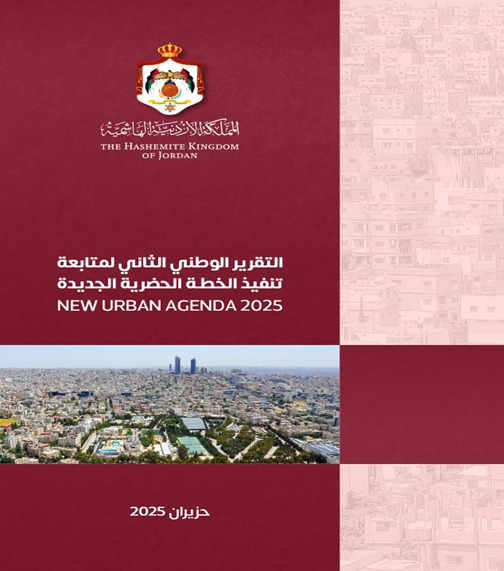The Council of Ministers has approved the second voluntary national report for monitoring the implementation of the New Urban Agenda, prepared by the General Corporation for Housing and Urban Development (HUDC). The report reviews Jordan’s achievements during the period 2019–2024, highlighting the role of the Economic Modernization Vision in supporting growth, enhancing urban sustainability, and improving quality of life.
The report also showcases efforts in digital transformation, improved governance, and performance monitoring through clear indicators. It reaffirms Jordan’s commitment to the 2030 Sustainable Development Agenda and its adoption of the New Urban Agenda, which was endorsed in 2016 by 167 countries as a roadmap for achieving Sustainable Development Goal 11 — making cities inclusive, safe, resilient, and sustainable through evidence-based urban planning and turning cities into sources of solutions.
Eng. Jomana Attyat, Director General HUDC, stated that the Corporation prepared Jordan’s Second National Report on progress in implementing the New Urban Agenda through a national committee chaired by her and composed of:
- Secretary General of the Ministry of Local Administration
- Secretary General of the Ministry of Social Development
- Director General of the Department of Statistics
- Director General of the Cities and Villages Development Bank
- Director of the City of Greater Amman Municipality
- Representative of the Higher Population Council
- Representative of the Jordanian National Commission for Women
The report was officially approved by the Cabinet, deposited at the National Library, and is in the process of being published on the United Nations platform.
Attyat noted that the report was the result of two years of continuous work, including dialogue sessions in cooperation with the United Nations Human Settlements Programme (UN-Habitat) to build capacity among stakeholders from both the public and private sectors. A number of experts and specialists participated to ensure the adoption of best practices in preparing Jordan’s report in a collaborative and inclusive manner.
Technical committees were tasked with collecting data and information using modern, participatory methodologies aligned with international standards for periodic reporting on the New Urban Agenda. This also provided a valuable opportunity for knowledge exchange regarding global best practices and methodologies for tracking urban development progress.
She added that the number of available indicators increased to 73 out of 77, achieving a 95% coverage rate in the second national report, compared to just 52% in the first report — which was also prepared by the Corporation.
